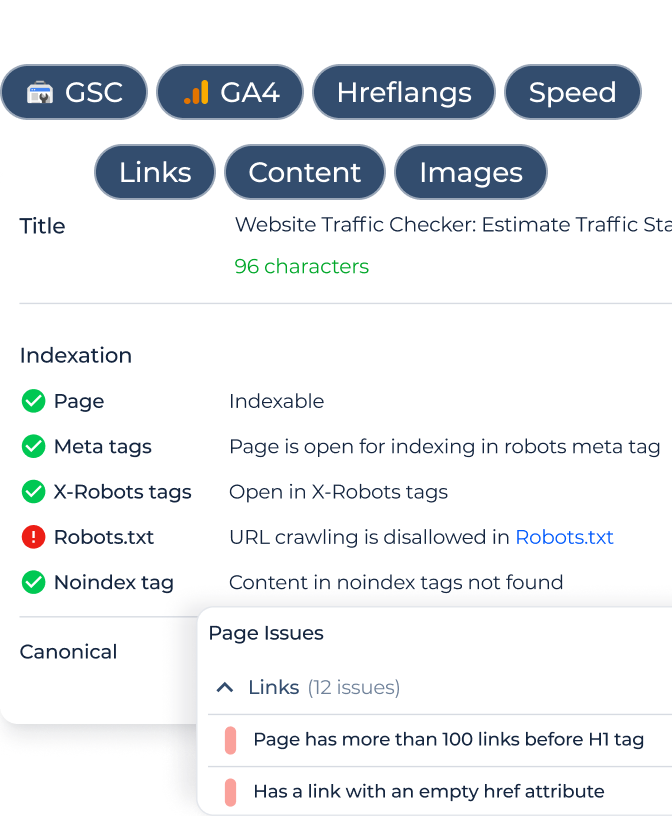What is Yahoo’s Search Engine?
Yahoo’s search engine is a web search platform that allows users to find information on the internet. Originally, Yahoo started as a directory of websites, helping users navigate the early web by categorizing and listing sites. Over time, it evolved into a full-fledged web search engine, with its algorithms and web crawling capabilities.
However, in 2009, Yahoo entered into a partnership with Microsoft, and since then, Bing has powered Yahoo’s search results. So, while users might initiate a search on Yahoo, the results they see come from Bing’s search algorithm. Despite this, Yahoo Search still offers a distinct user interface and integrates search engine results with other Yahoo services like Yahoo Finance, News, and Sports.

Why is Yahoo Important?
The importance of Yahoo in the digital landscape cannot be understated for several reasons:
- Pioneering Role: Yahoo was one of the first major internet directories and search engines. Before the dominance of Google, Yahoo was the primary means for many people to find and access information online.
- Diverse Services: Beyond just a search engine, Yahoo developed an array of online services. Yahoo Mail, for instance, is still one of the most widely used email platforms globally. Yahoo Finance and Yahoo News have also remained as primary sources of information for millions.
- Mergers and Acquisitions: Throughout its history, Yahoo has been involved in numerous mergers and acquisitions. It has acquired, invested in, or merged with many startups and big companies, fostering innovation and technology expansion in various sectors.
- Cultural Impact: Yahoo played a significant role in popularizing the internet in the 1990s and early 2000s. The term “Yahoo it!” was commonly used, much like how “Google it” is used today.
- Economic Significance: At its peak, Yahoo’s market capitalization was in the hundreds of billions, making it one of the most valuable companies in the world. Its rise and fall have been subjects of case studies in business schools, shedding light on the dynamics of the tech industry.
- Challenges and Evolution: The challenges Yahoo faced, particularly with the rise of Google and other competitors, and its attempts at reinvention, offer important lessons in tech industry adaptability, market strategy, and resilience.
In summary, Yahoo’s contributions to the internet era, its role in shaping online user behavior, and its broader impact on the tech industry make it an indispensable chapter in the history of the World Wide Web.
What is Yahoo: Explained
Yahoo!, colloquially known as Yahoo, began its journey as a simple directory for other websites but swiftly morphed into one of the internet’s behemoths, offering a gamut of services that ranged from a popular search engine, to customized portals like news, finance, and sports. Throughout its tenure, Yahoo played a pivotal role in shaping how people consumed content on the web, how they communicated, and even how large and small businesses approached the digital marketplace.
Quick Facts
- Founded: 1994
- Founders: Jerry Yang and David Filo
- Original Purpose: A directory of other websites
- Headquarters: Sunnyvale, California, USA
- Peak User Base: In the early 2000s, Yahoo was visited by millions of users daily.
- Key Services: Yahoo Mail, Yahoo Finance, Yahoo News, Yahoo Sports, among others.
- Major Acquisitions: Companies like GeoCities, Flickr, and Tumblr were all bought by Yahoo at various points in its history.
- Current Status: After various transformations, mergers, and management changes, parts of Yahoo’s core business were sold to Verizon Communications in 2017.
What happened to Yahoo!?
The trajectory of Yahoo, while marked with significant successes, also witnessed challenges and periods of decline. Here’s a brief overview of the events that transpired:
| Dominance in the Early Days | During the late 1990s and early 2000s, Yahoo was the front-runner in the web services arena. Its user-friendly interface, combined with an array of services, made it a household name. |
| Missed Opportunities | Yahoo had chances to purchase several up-and-coming companies, including a failed bid to acquire Google in its early days. Later, Yahoo declined a takeover offer from Microsoft in 2008, which many believe was a missed opportunity. |
| Rise of Competitors | The ascent of Google, especially its search engine, drastically affected Yahoo’s market share. Moreover, platforms like Facebook and Twitter began to change the digital landscape, diverting traffic and ad revenues. |
| Internal Struggles | Yahoo saw frequent changes in leadership, with several CEOs at its helm over a short span. Each attempted different strategies to revitalize the company, but consistent direction was elusive. |
| Data Breaches | Yahoo faced significant security issues, with one of the largest data breaches in history occurring in 2013-2014, impacting over a billion user accounts. This damaged its reputation and user trust. |
| Verizon Acquisition | In 2017, after years of challenges and attempts at resurgence, the core internet operations and land holdings of Yahoo were sold to Verizon Communications. This marked the end of Yahoo as an independent company. Yahoo’s stakes in Alibaba and Yahoo Japan were retained in a company called Altaba, which later liquidated its assets and dissolved. |
| Continued Existence | Despite its challenges, Yahoo continues to exist and operate under Verizon’s umbrella. Its email service, news platforms, and some other services remain active, serving millions of users worldwide. |
In the vast timeline of the internet, Yahoo’s journey serves as a testament to the rapid changes in the digital landscape, the rise and fall of tech giants, and the importance of adaptation and foresight in the ever-evolving tech industry.
The Difference Between Yahoo and Google
Yahoo and Google, two titans popular search engines of the early internet era, have both contributed significantly to the digital landscape. However, while they started with similar offerings in search, their trajectories and approaches have diverged considerably over time. Below is a comparison highlighting the differences between the two.
Search Algorithm
Yahoo:
- Early Days: Initially, Yahoo began as a directory and didn’t rely on an algorithm in the traditional sense. Instead, websites were organized based on categories.
- Yahoo Search: In the 2000s, Yahoo developed its own search algorithm but later outsourced its search technology to Microsoft’s Bing in 2009 as part of a partnership deal.
Google:
- PageRank: Google’s original differentiator was its PageRank algorithm, which ranked pages based on the number and quality of links. This provided more relevant results than many of its competitors.
- Ongoing Evolution: Google’s algorithm has constantly evolved, incorporating numerous other ranking factors, including site speed, mobile compatibility, content quality, and user engagement metrics.
Search Results
Yahoo:
- Directory Style: In its initial phase, Yahoo’s results were presented in a hierarchical directory style. This made it more of a curated list rather than the dynamic search results we’re used to today.
- Integration with Bing: After the Microsoft partnership, Yahoo’s search results have been heavily influenced by Bing’s algorithm, making them quite similar in many aspects.
Google:
- Relevancy: Google has always emphasized delivering the most relevant results to users. Its results are often seen as more comprehensive and accurate due to its sophisticated ranking factors.
- Featured Snippets & Knowledge Graph: Google has introduced features that provide direct answers to queries, making information retrieval quicker and more user-friendly.
Features and Tools
Yahoo:
- Yahoo Services: Yahoo is not just a search engine. It has an array of other services, including Yahoo Mail, Yahoo Finance, and Yahoo News. Each of these catered to different user needs.
- Media Content: Yahoo placed a strong emphasis on media, with video content, original articles, and even digital magazines at different points in its history.
Google:
- Beyond Search: Google has expanded its suite of tools over the years to include Google Maps, Google Drive, Google Photos, and many more.
- Integration: One of Google’s strengths is the seamless integration of its services. For instance, searching for a location on Google can easily lead to directions on Google Maps.
Design Difference
Yahoo:
- Portal Layout: Yahoo’s homepage traditionally functioned as a portal, with news, horoscopes, email access, and more all available from the main page.
- Media-Rich: Given its emphasis on media, Yahoo’s design has often been more visual, with images and videos featured prominently.
Google:
- Minimalism: Google is known for its clean, minimalist design. The main search page has traditionally featured just the logo, search bar, and a few buttons.
- Focus on Speed: Google’s design philosophy has always been to get users to their desired information as quickly as possible, leading to a streamlined user experience.
In conclusion, while both Yahoo and Google started in the default search engine domain, their paths, philosophies, and offerings have taken different directions. Each has its unique strengths and has contributed in its own way to how we experience the web today.
What is Yahoo SEO and How Does it Work?
Yahoo SEO refers to the process of optimizing a website specifically for the Yahoo search engine. Though many core SEO principles apply across all major search engines, including Google and Bing, there may be specific nuances and best practices tailored to each search engine’s algorithm.
Back in its prime, Yahoo was a dominant search engine, and many businesses optimized search services especially for its search algorithm. However, in 2009, Yahoo entered into a partnership with Microsoft to have Bing power its search results. Since then, Yahoo SEO has been closely aligned with Bing SEO.
How does Yahoo search engine ranking algorithm work
Here’s an overview of how the Bing (and by extension, Yahoo) search engine ranking algorithm works:
| Relevance | Like all search engines, the primary aim is to provide relevant results to users. This involves analyzing the content of a webpage to determine its topic and then matching this to the user’s query. |
| Quality of Content | Bing’s algorithm evaluates the depth, clarity, and originality of content. Well-researched, comprehensive content that covers a topic thoroughly tends to rank higher. |
| User Engagement | If users click on a search result and then quickly return to the search page (indicating they didn’t find what they were looking for), this can negatively impact rankings. Conversely, if users spend a longer time on a page, it indicates the content was useful. |
| Backlinks | Links from reputable, high-authority websites can significantly boost a page’s ranking. Bing’s algorithm evaluates both the quality and the relevance of incoming links. |
| Page Load Speed | Faster loading pages provide a better user experience and are favored by the algorithm. |
| Mobile Responsiveness | With a significant portion of web searches coming from mobile devices, mobile-friendliness is a crucial ranking factor. |
| Technical SEO | Properly structured URLs, effective use of meta tags, XML sitemaps, and a well-organized site structure can all contribute to better rankings. |
| Social Signals | While there’s some debate about the exact influence, many SEO experts believe that Bing’s algorithm takes into account social signals, such as shares, likes, and tweets. |
| Local Signals | For local searches, Bing/Yahoo looks at factors like proximity to the searcher, positive reviews, and consistency in business listings across the web. |
| User Location and Search History | Bing’s algorithm considers the user’s location and previous search history to deliver more personalized results. |
| Keyword Optimization | Proper placement and relevance of keywords in the content, titles, meta descriptions, and URLs are essential. Unlike Google, which has moved further away from exact keyword matching, Bing still places a fair amount of emphasis on it. |
It’s essential to understand that search engine algorithms are complex, dynamic, and continuously evolving. To succeed in ranking well on Yahoo/Bing, it’s crucial to stay updated with the latest SEO best practices and algorithm updates specific to Bing.
How do you get a high ranking on Yahoo?
Achieving a high ranking on Yahoo, given its partnership with Bing, involves a mix of general SEO best practices and some Bing-specific techniques:
- Optimize for Bing: As Bing’s algorithm powers Yahoo, focus on Bing’s SEO guidelines. Understand what Bing’s crawlers are looking for and optimize accordingly.
- Use Bing Webmaster Tools: Submit your website, sitemaps, and monitor your site’s performance in Bing Webmaster Tools. Address any crawl errors or issues that are highlighted.
- Keyword Optimization: Ensure that your content is optimized for relevant keywords. Bing’s algorithm places a fair amount of emphasis on exact keyword matching.
- High-Quality Backlinks: Prioritize getting high-quality, authoritative backlinks to your site. Bing’s (and thereby Yahoo’s) algorithm considers the quality of the sites linking to you.
- Local Listings: Ensure your business is listed and verified on Yahoo Local. This can boost your visibility for local searches on Yahoo.
- Social Signals: Bing’s algorithm takes into account social signals, so having a strong social media presence can positively influence your Yahoo rankings.
- Page Speed: Ensure your website loads quickly. Both user experience and search ranking can be negatively impacted by slow-loading pages.
- Mobile Optimization: With more users searching on mobile devices, having a mobile-friendly site is essential for ranking well on Yahoo.
- Meta Tags and Descriptions: While these are basic SEO practices, Bing’s algorithm still gives them reasonable weight. Ensure your titles, meta descriptions, and meta tags are well-optimized.
- Avoid Black Hat Techniques: Engaging in tactics like keyword stuffing, cloaking, or using doorway pages can get your site penalized on Bing and Yahoo.
By keeping these strategies in mind and regularly monitoring and updating your optimization techniques, you can achieve and maintain a high ranking on Yahoo.
What is Yahoo Used for?
Yahoo, one of the pioneers of the early internet era, offers a myriad of services and platforms that cater to various user needs. Over the years, its functions have expanded and evolved. Here’s a breakdown of what Yahoo is used for:
| Search Engine | Initially, Yahoo began as a web directory, and over time, it developed its search engine. While its search operations are now powered by Bing, Yahoo Search remains a tool that many users turn to for information. |
| Email Service | Yahoo Mail is one of Yahoo’s most popular offerings. With millions of users worldwide, it offers email services, organization tools, and integration with other Yahoo services. |
| News Platform | Yahoo News provides users with the latest updates on national and international events. The platform features original reporting, aggregated news, and a user-friendly interface that allows for topic customization. |
| Financial Information | Yahoo Finance is a leading platform for financial news, stock market data, reports, and analysis. Users can track their portfolios, get real-time stock quotes, and read up on financial news. |
| Sports Coverage | Yahoo Sports offers news, scores, statistics, and commentary on various sports, including football, basketball, baseball, and more. |
| Entertainment | Yahoo Entertainment covers movies, TV shows, celebrity news, and more. It’s a go-to platform for many users looking for updates from the entertainment world. |
| Shopping | Yahoo Shopping connects users to various e-commerce platforms and products, helping users compare prices and find deals. |
| Yahoo Answers | Although it was discontinued in 2021, Yahoo Answers was a popular platform where users could ask questions on a range of topics and get answers from the community. |
| Yahoo Local | This service offers localized information on businesses, services, and events in a user’s area. |
| Web Hosting and Business Services | Yahoo Small Business provides domains, website hosting, e-commerce solutions, and business email services. |
| Social Media | Over the years, Yahoo acquired various social media and community platforms, such as Tumblr. |
| Digital Magazines | Yahoo had digital magazines on topics ranging from technology and health to fashion and food. Though some have been discontinued, they provided in-depth articles and features. |
| Weather | Yahoo Weather provides detailed weather updates, forecasts, and interactive radar maps. |
| Yahoo Groups | This was a platform for community discussions and group communications. However, it was discontinued in 2020. |
| Flickr | Acquired by Yahoo in 2005, Flickr is a photo-sharing platform where users can upload, share, and discover photos and videos. Although it’s no longer under Yahoo’s ownership, it was a significant part of its service lineup. |
While Yahoo has faced challenges over the years and seen changes in ownership and service offerings, it remains an integral part of the internet’s history and continues to serve millions of users worldwide with its diverse range of services.
Get Accurate Results for Your Website Position With Yahoo Rank Tracker
The Yahoo Rank Tracker tool by SiteChecker is an essential utility for digital marketers and SEO specialists aiming to optimize their web presence on Yahoo’s search engine. Recognizing Yahoo as a significant player in the global search market, this tool provides precise insights into how a website is ranked on Yahoo. It enables users to track the performance of their keywords and web pages, offering valuable data to refine SEO strategies specifically for Yahoo’s unique search algorithm and user base.
Besides its primary function of rank tracking, the tool comes equipped with features that allow for a deeper analysis of search performance. It includes detailed reports on keyword rankings over time, helping users to understand and adapt to trends and fluctuations in Yahoo’s search results. Additionally, the tool offers competitor analysis, enabling users to benchmark their performance against others in their industry. With these comprehensive insights, the Yahoo Rank Tracker tool is a must-have for anyone looking to enhance their visibility and engagement on Yahoo search.
Start Tracking Today!
Discover your site's ranking and get actionable insights with our tool.
Conclusion
Yahoo, once a dominant force in the early internet landscape, has played a pivotal role in shaping the digital world we know today. From its origins as a simple web portal and directory to its evolution into a multifaceted platform offering news, finance, email, and more, Yahoo has consistently adapted to the ever-changing digital environment. Though it has faced challenges and shifts in ownership over the years, its legacy and contributions to the digital sphere remain undeniable. As the internet continues to evolve, Yahoo’s story serves as a testament to innovation, resilience, and the transformative power of technology.









